ECB vows to delay interest rate rise
European Central Bank President Mario Draghi has committed to stalling interest rate hikes amid fears of a global economic slowdown

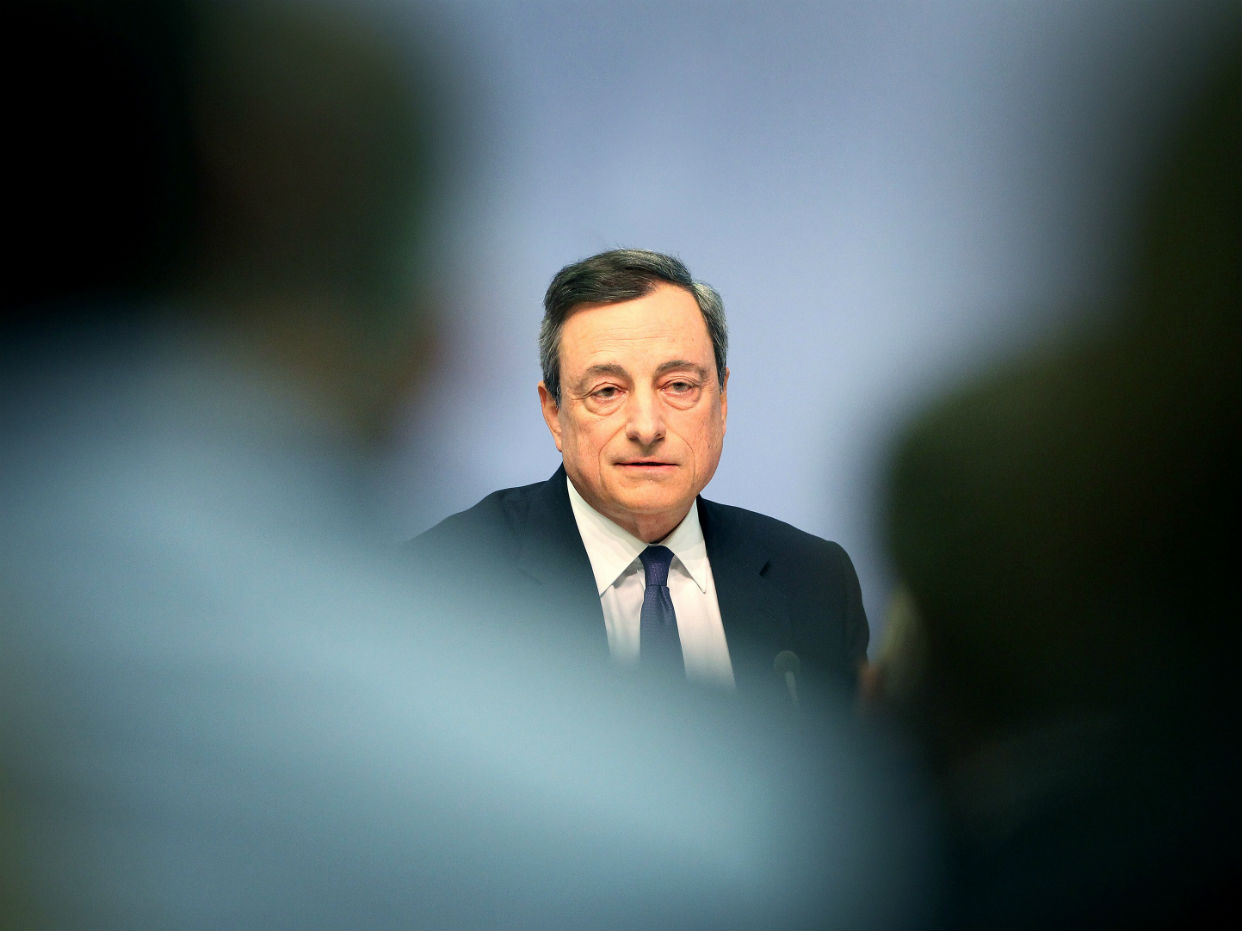
A free daily email with the biggest news stories of the day – and the best features from TheWeek.com
You are now subscribed
Your newsletter sign-up was successful
The European Central Bank will delay its first interest rate hike since the 2008 financial crisis "at least through the first half of 2020", said its president, Mario Draghi.
The previous policy was for rates to stay steady until the end of 2019, but Draghi went further, indicating the bank was ready to “use all the instruments that are in the toolbox”, opening the door to a new surge of monetary support before his term ends in October, including a new round of bond purchases and further cuts to ECB’s already record-low interest rates.
The move offers to “effectively pay banks to borrow from it and lend that money on to the real economy”, Reuters says.
The Week
Escape your echo chamber. Get the facts behind the news, plus analysis from multiple perspectives.

Sign up for The Week's Free Newsletters
From our morning news briefing to a weekly Good News Newsletter, get the best of The Week delivered directly to your inbox.
From our morning news briefing to a weekly Good News Newsletter, get the best of The Week delivered directly to your inbox.
The bank’s new quantitative easing measures are designed to assuage rising concerns over currency deflation and global economic slowdown - even downturn.
“The prolonged presence of uncertainties related to geopolitical factors, the rising threat of protectionism and vulnerabilities in emerging markets is leaving its mark on economic sentiment,” Draghi said.
Initially, the announcement saw the euro climb 0.6% yesterday, but it “faded quickly as investors sensed that Draghi was trying to send a dovish message with cheap talk rather than meaningful action”, the Telegraph says.
“It is more dovish than we probably expected ... But I wouldn’t say the ECB is really getting ahead of the curve,” Florian Hense, European economist at Berenberg, told CNBC.
A free daily email with the biggest news stories of the day – and the best features from TheWeek.com
Indeed Draghi’s pledge “capped a dovish week for the world’s two most important central banks,” says the Financial Times. “Jay Powell, chair of the US Federal Reserve, said earlier this week that he was prepared to cut rates should the global trade war begin to affect the US economy.”
“Australia cut interest rates on Tuesday for the first time in three years”, Bloomberg reports, “and bets are mounting that the Bank of Japan will add stimulus. India reduced its key rate on Thursday and changed its stance to accommodative.”
It is too little, too late, according to Ashoka Mody, formerly of the International Monetary Fund, who oversaw much of the bailout following the 2008 financial crisis. “There is nothing that the ECB can do. It is completely powerless”, he said. “It has entered a zone of ‘involution’ and is scrounging about trying to create a sense of action, but none of this has any effect.”
“The days are long gone when the ECB maestro can restore animal spirits with a catchy phrase,” Ambrose Evans-Pritchard writes in the Telegraph. “The famous bazooka has become a popgun.”
William Gritten is a London-born, New York-based strategist and writer focusing on politics and international affairs.
-
 American universities are losing ground to their foreign counterparts
American universities are losing ground to their foreign counterpartsThe Explainer While Harvard is still near the top, other colleges have slipped
-
 How to navigate dating apps to find ‘the one’
How to navigate dating apps to find ‘the one’The Week Recommends Put an end to endless swiping and make real romantic connections
-
 Elon Musk’s pivot from Mars to the moon
Elon Musk’s pivot from Mars to the moonIn the Spotlight SpaceX shifts focus with IPO approaching
-
 The end for central bank independence?
The end for central bank independence?The Explainer Trump’s war on the US Federal Reserve comes at a moment of global weakening in central bank authority
-
 What are stablecoins, and why is the government so interested in them?
What are stablecoins, and why is the government so interested in them?The Explainer With the government backing calls for the regulation of certain cryptocurrencies, are stablecoins the future?
-
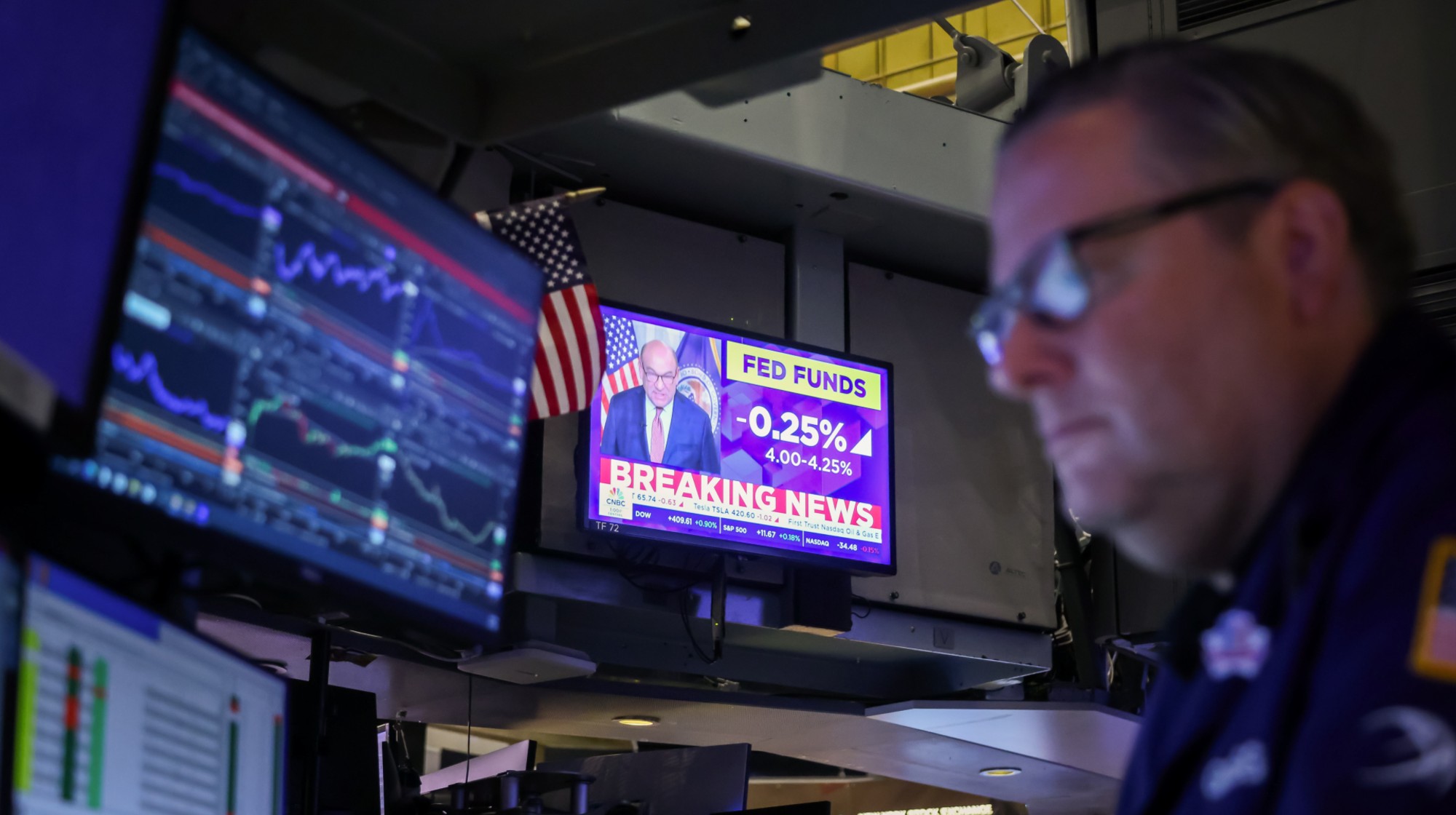 Fed cuts interest rates a quarter point
Fed cuts interest rates a quarter pointSpeed Read ‘The cut suggests a broader shift toward concern about cracks forming in the job market’
-
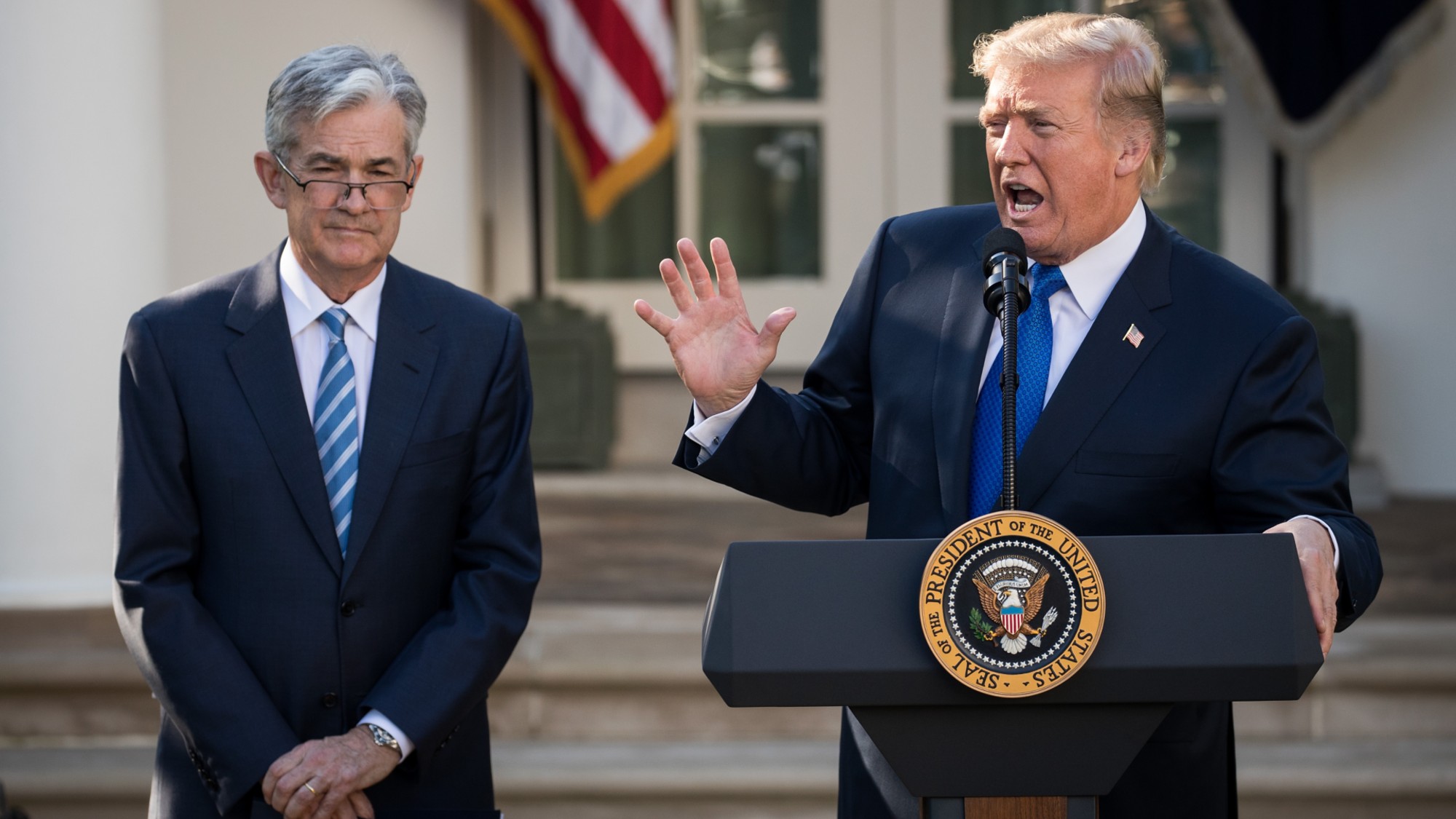 How will Wall Street react to the Trump-Powell showdown?
How will Wall Street react to the Trump-Powell showdown?Today's Big Question 'Market turmoil' seems likely
-
 Will Rachel Reeves have to raise taxes again?
Will Rachel Reeves have to raise taxes again?Today's Big Question Rising gilt yields and higher debt interest sound warning that Chancellor may miss her Budget borrowing targets
-
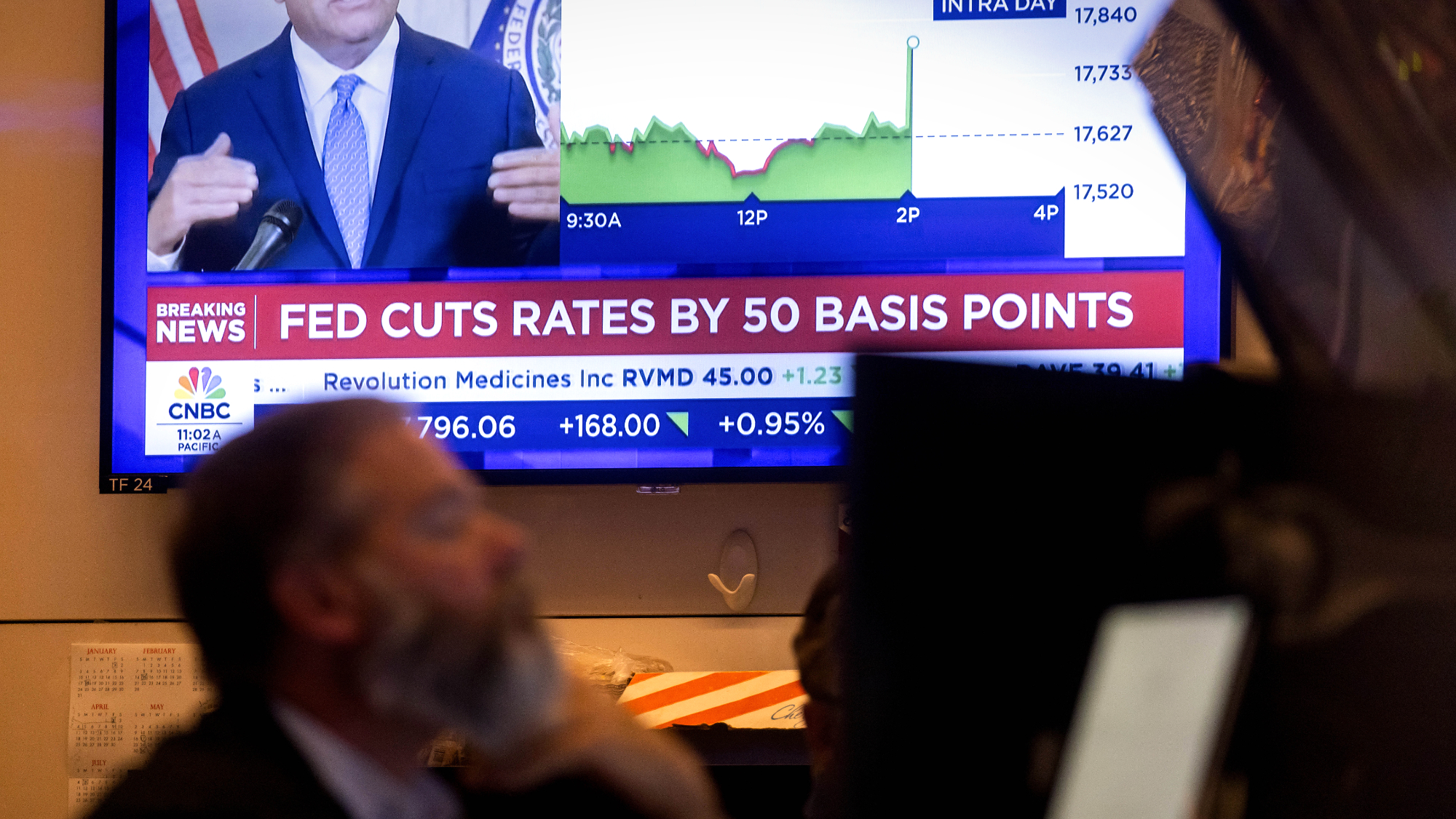 Fed cuts rates half a point, hinting victory on inflation
Fed cuts rates half a point, hinting victory on inflationSpeed Read This is the Fed's first cut in two years
-
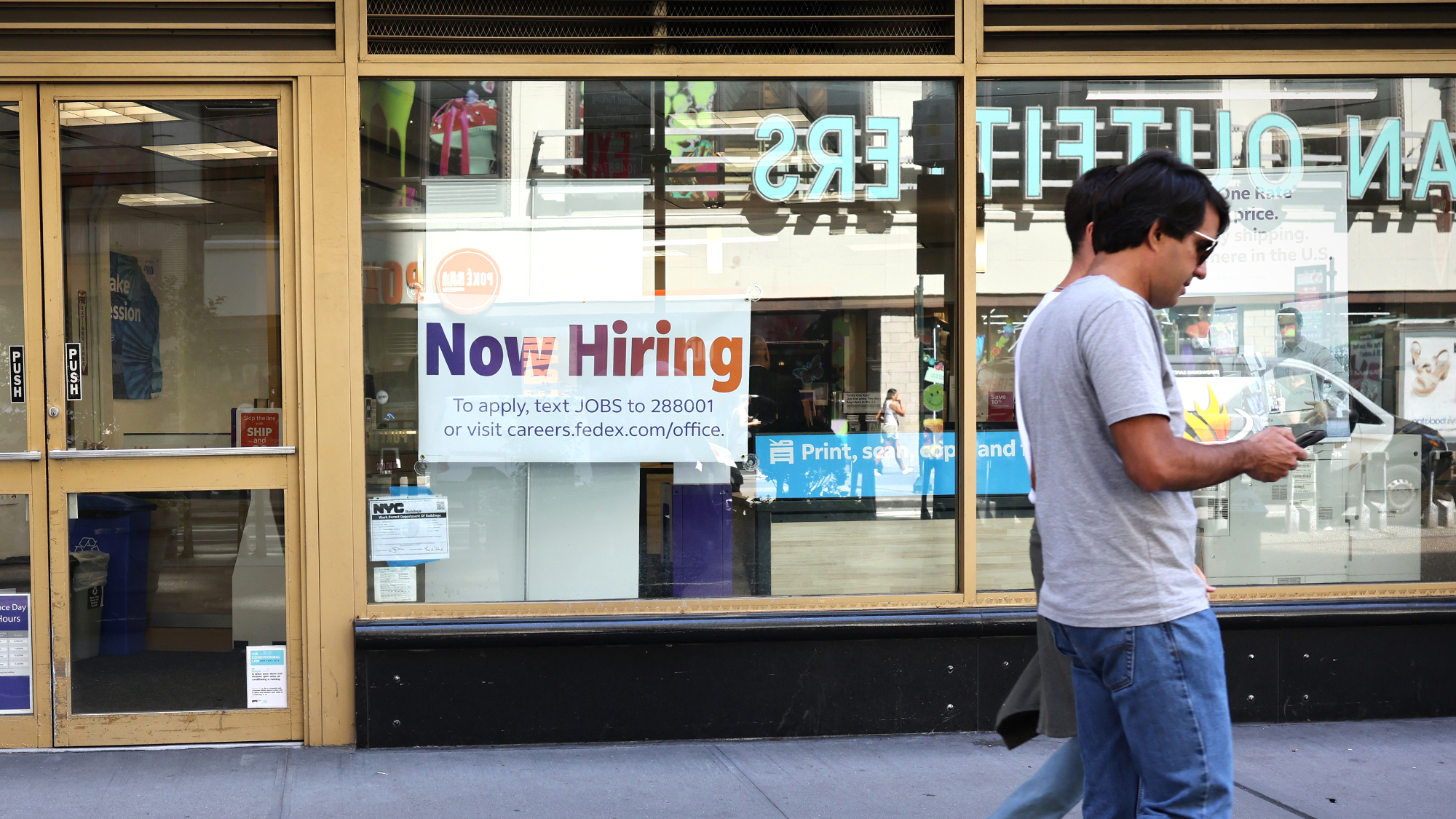 US job growth revised downward
US job growth revised downwardSpeed Read The US economy added 818,000 fewer jobs than first reported
-
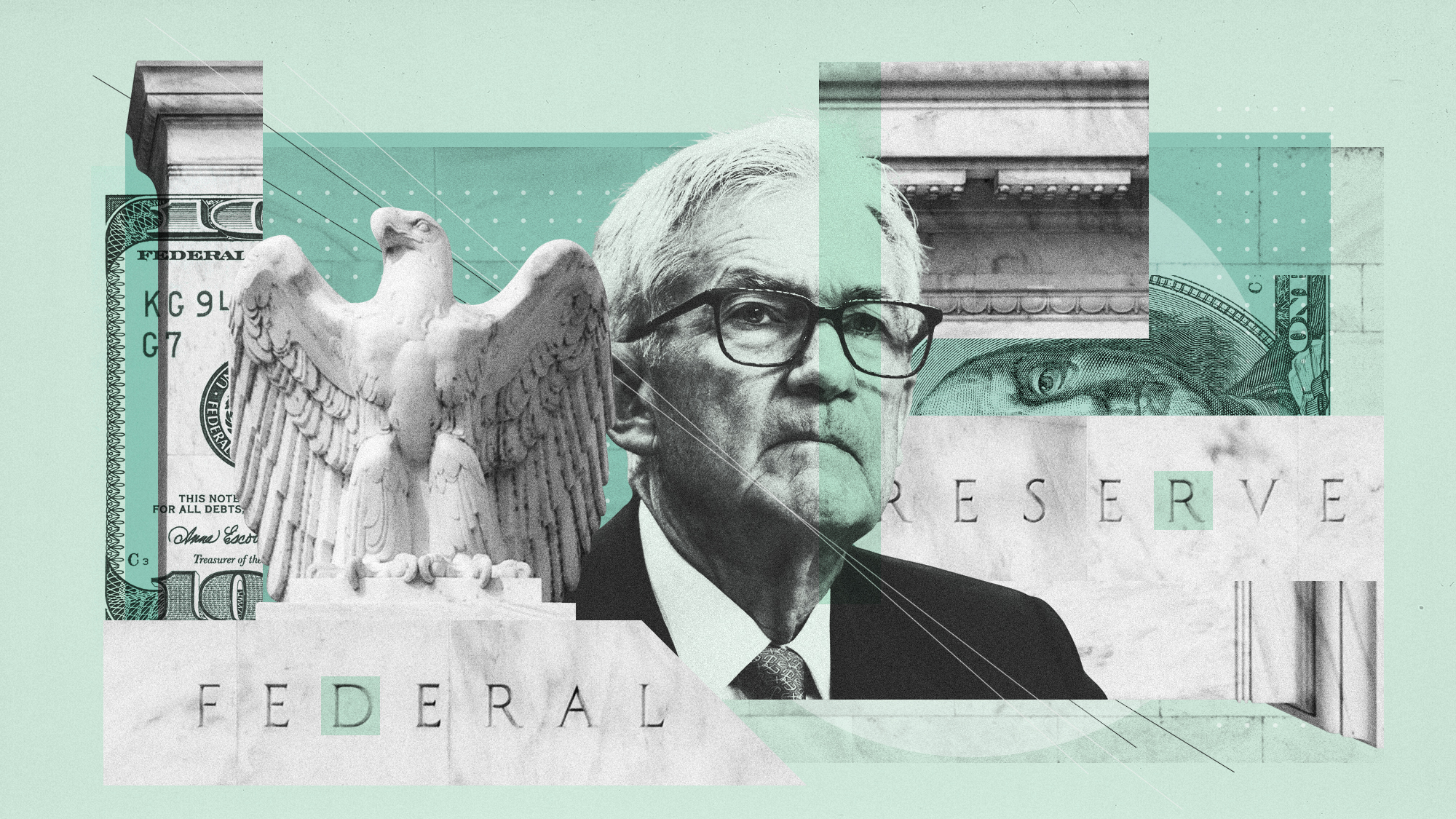 Is the Fed ready to start cutting interest rates?
Is the Fed ready to start cutting interest rates?Today's Big Question Recession fears and a presidential election affect the calculation
